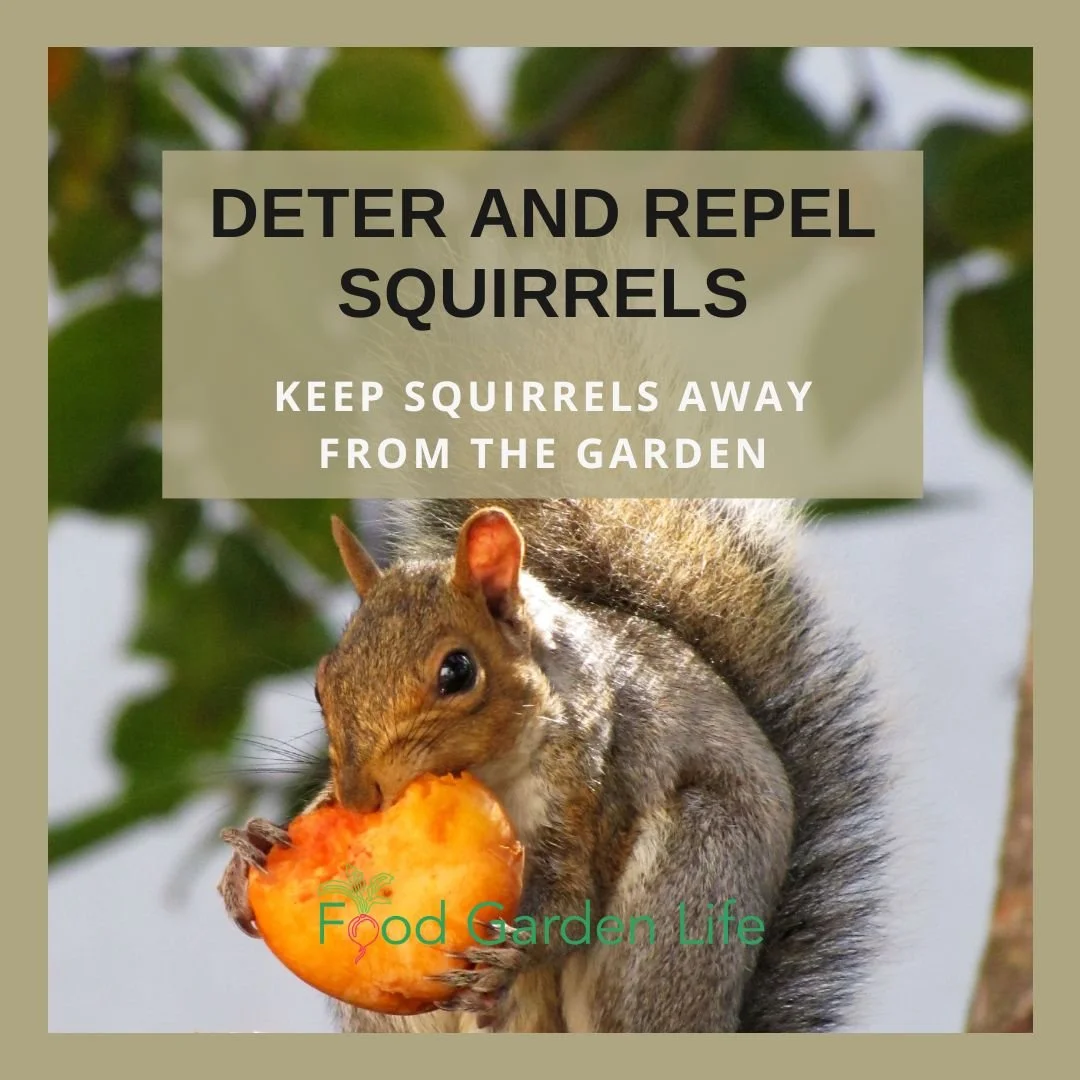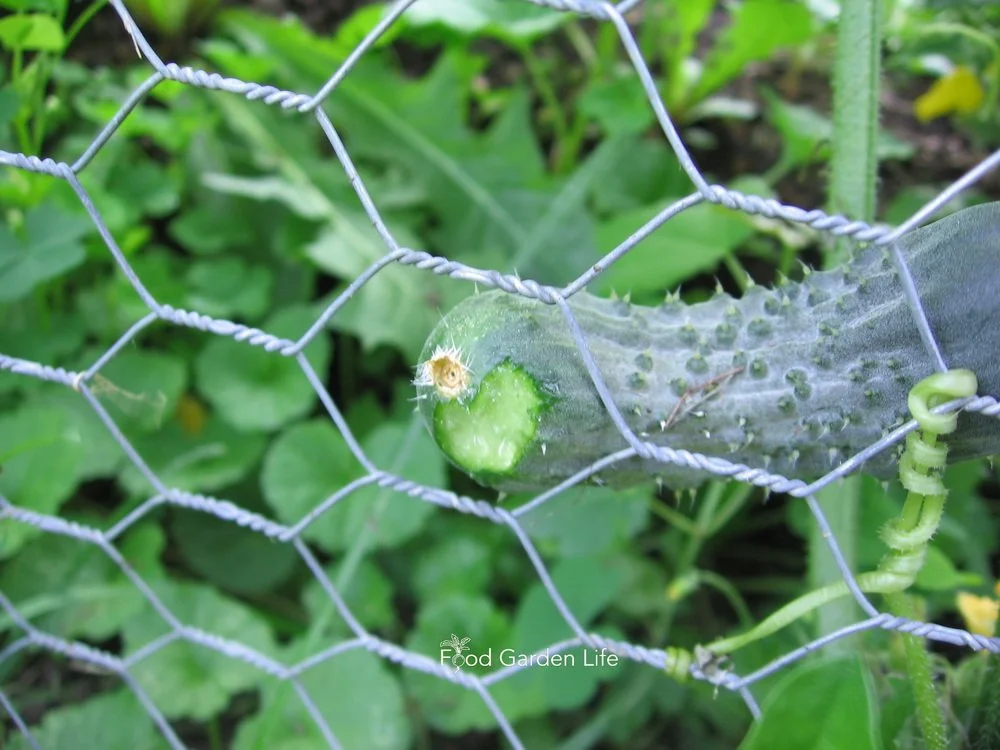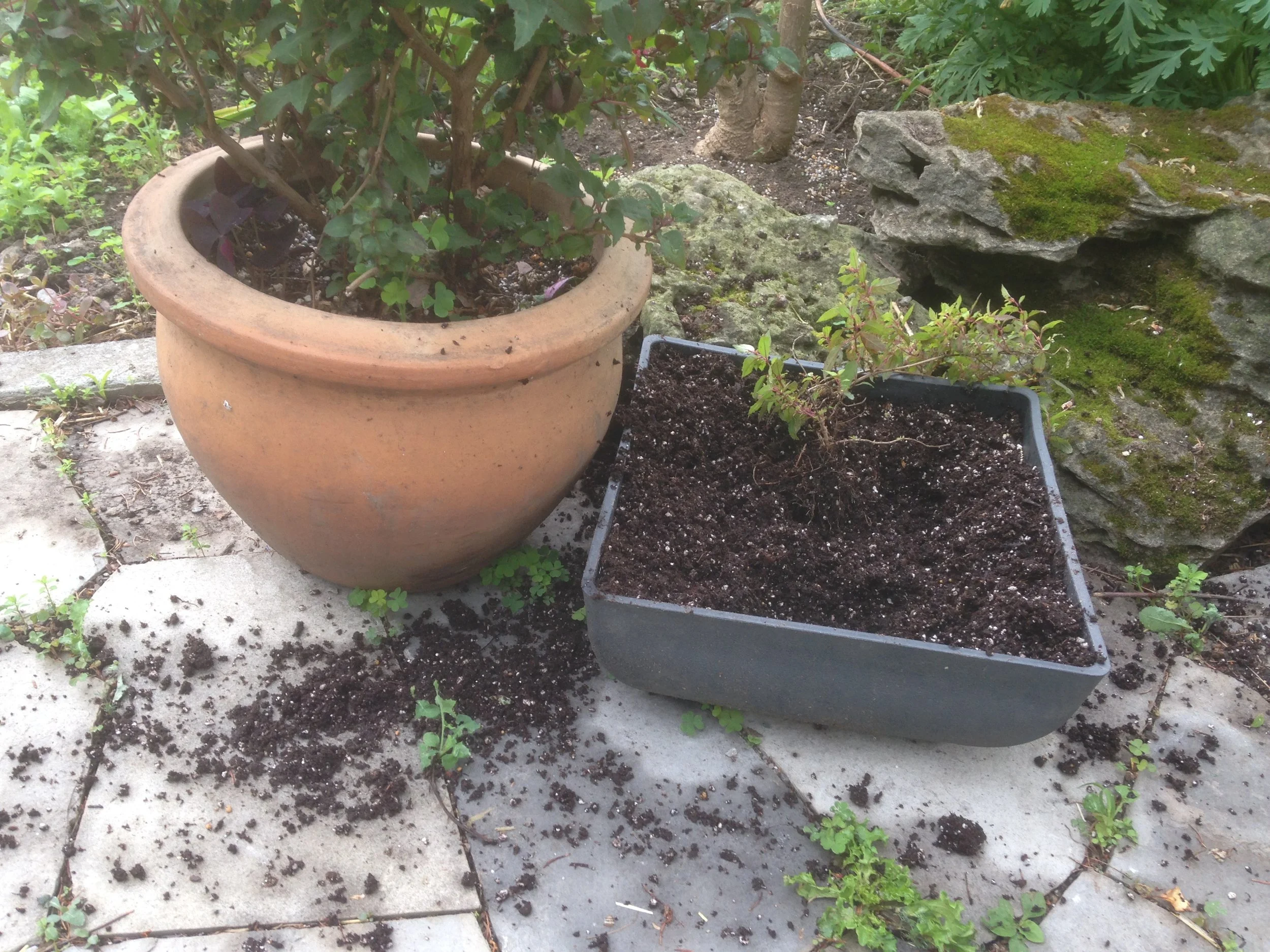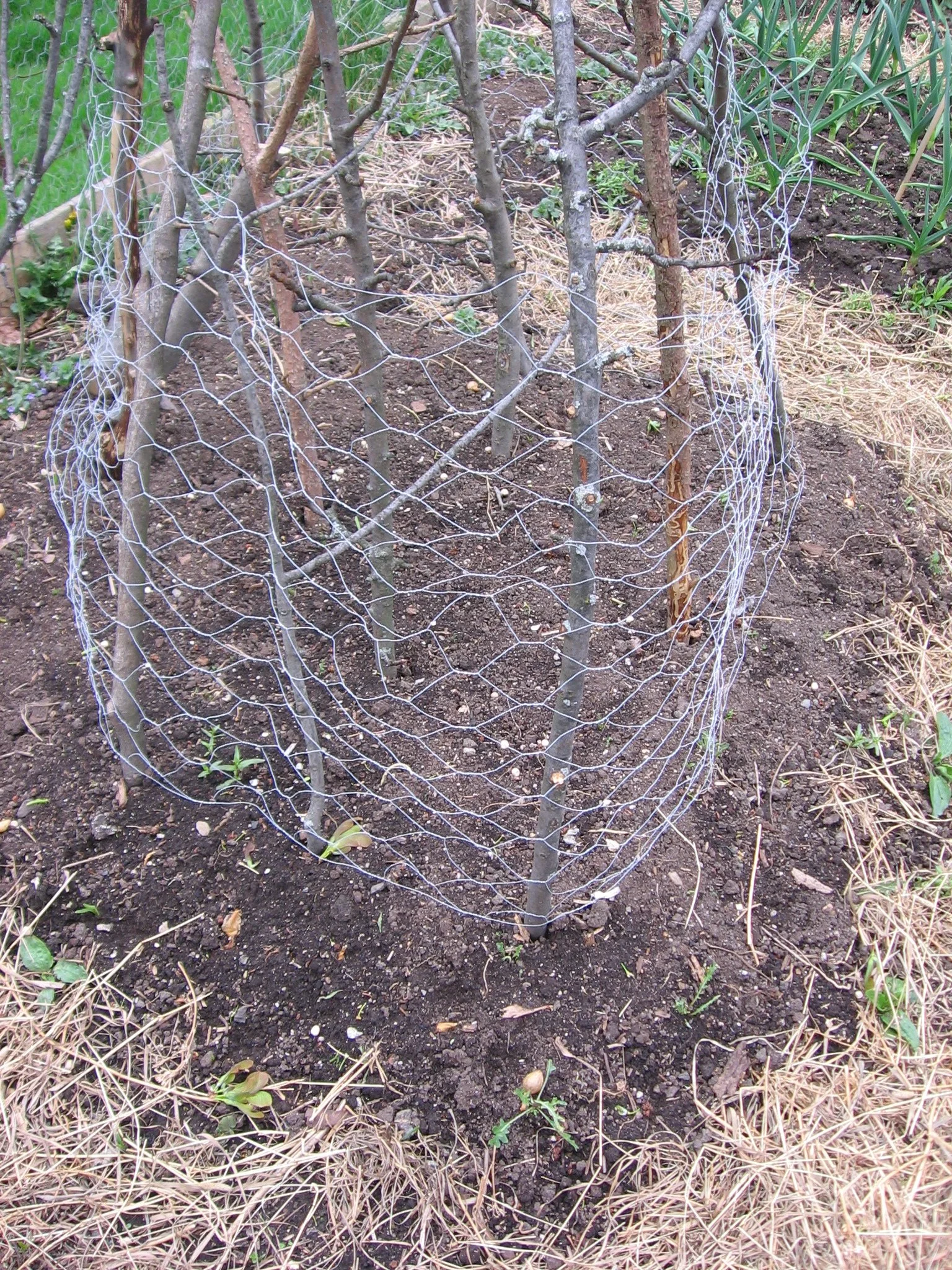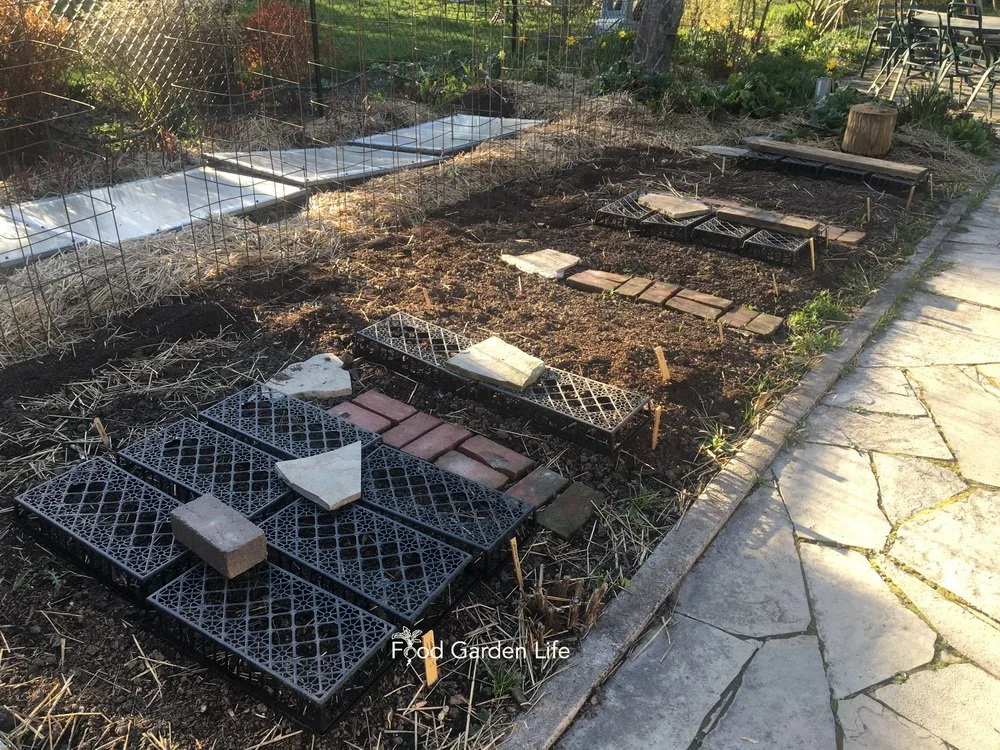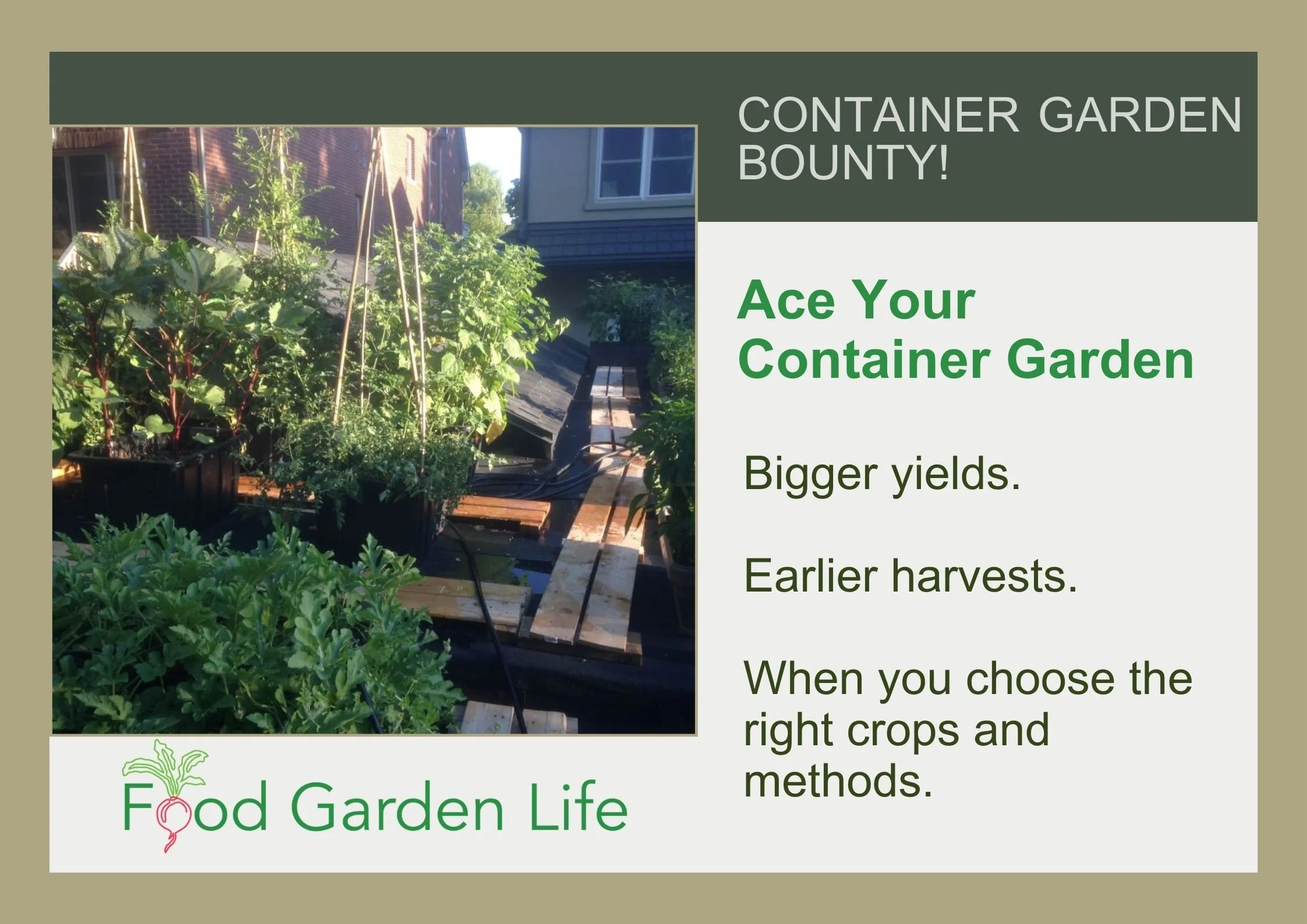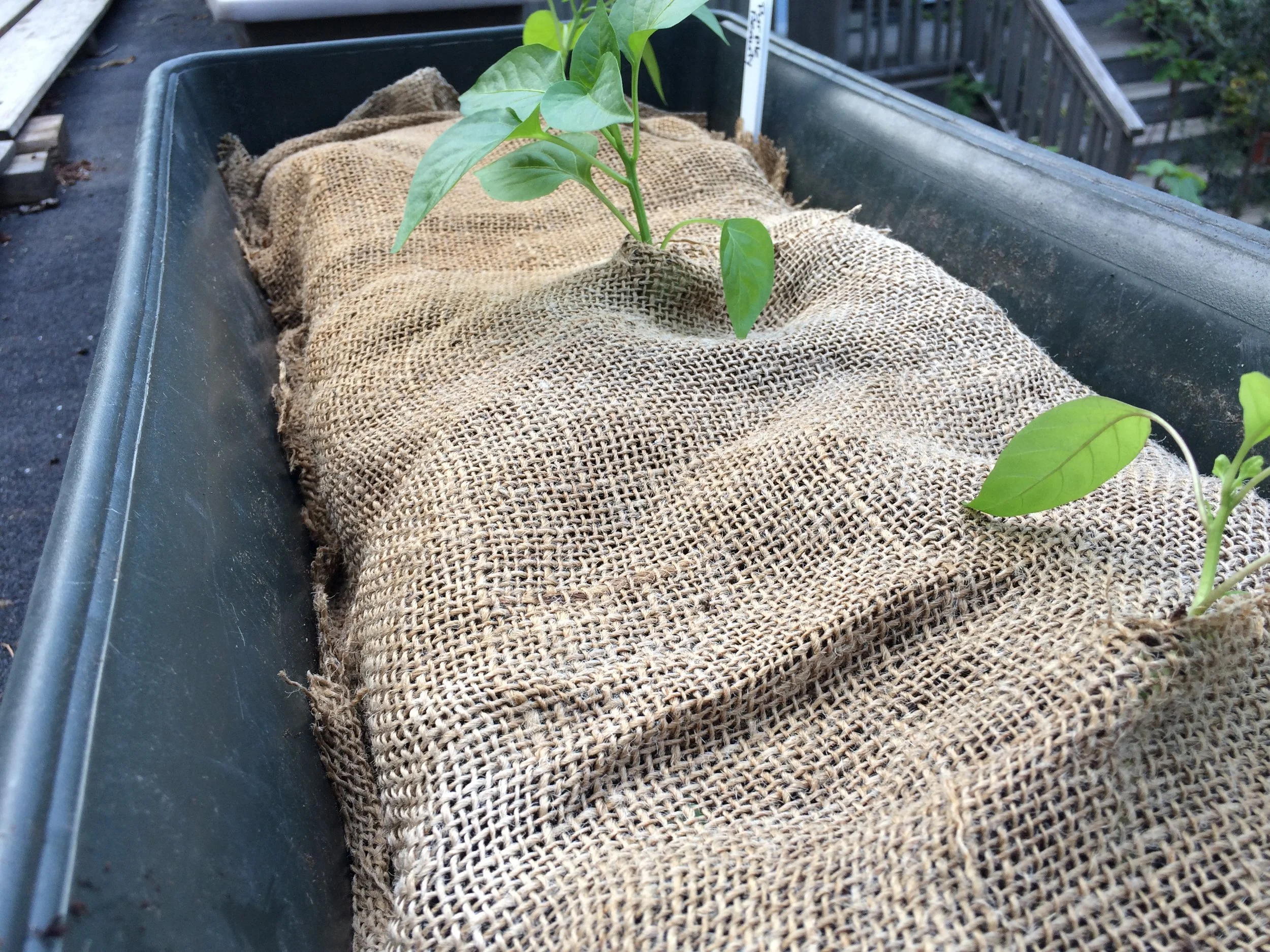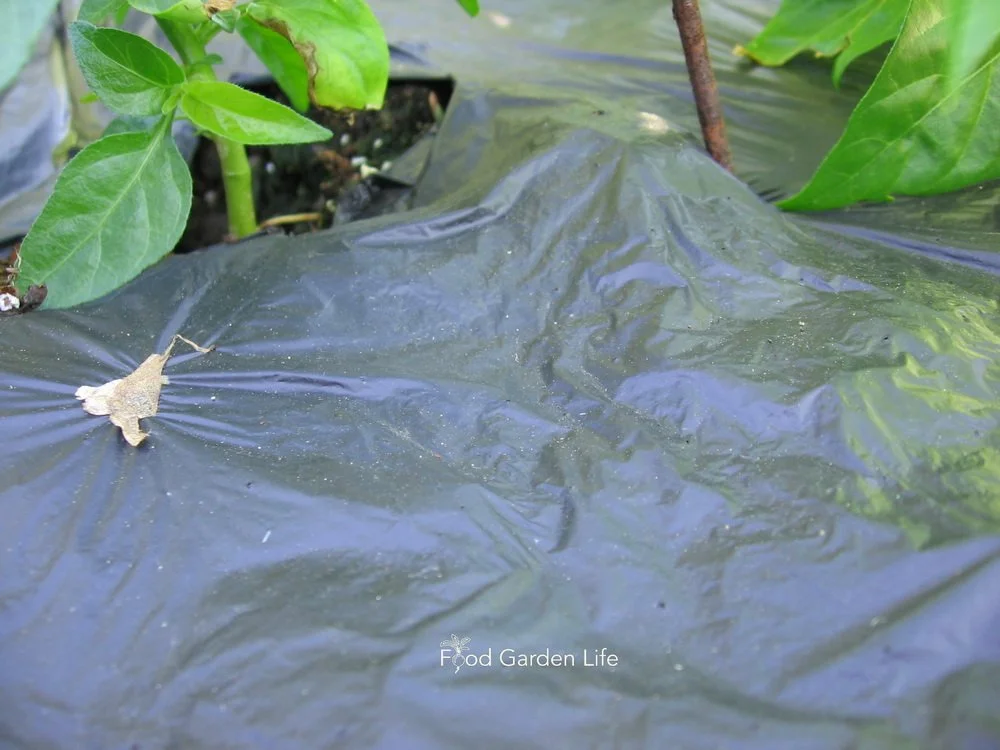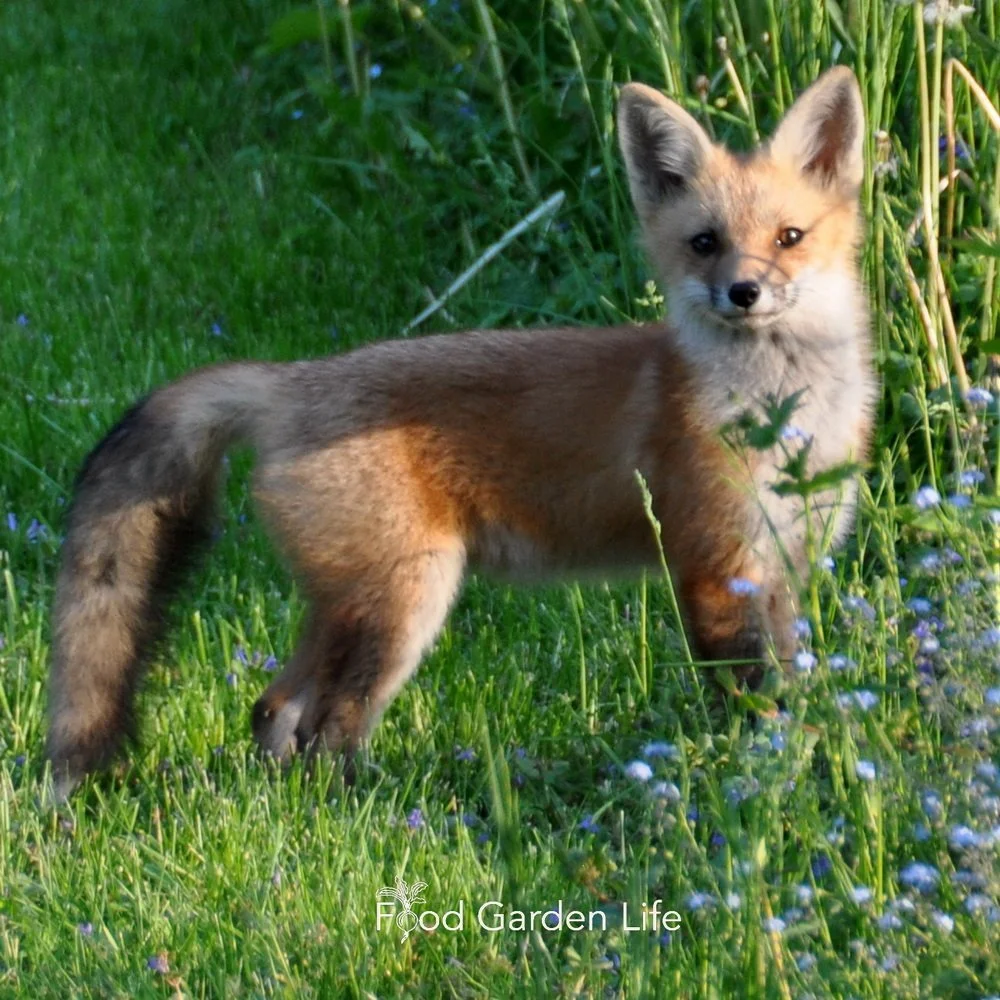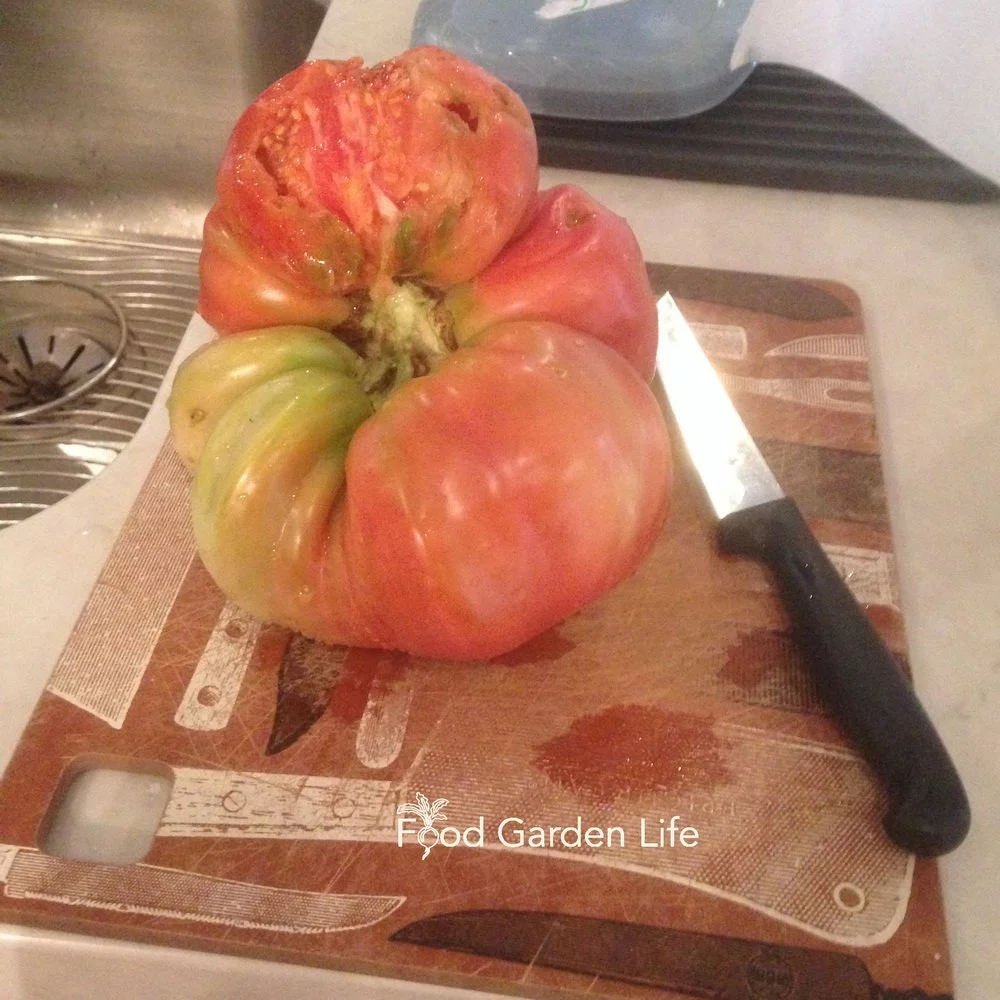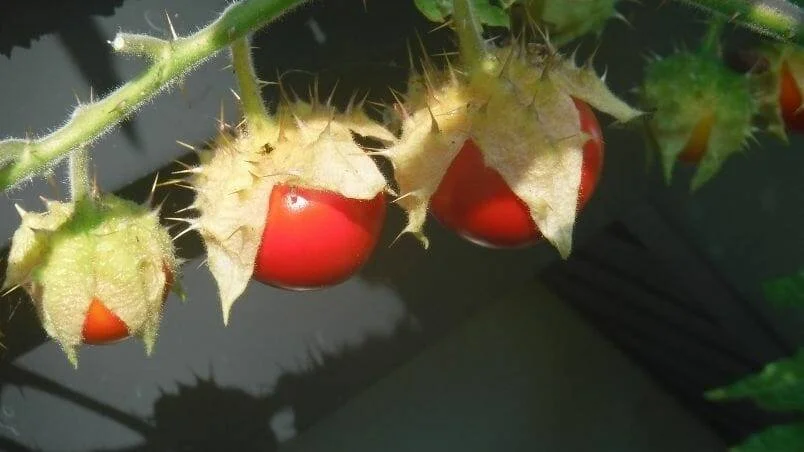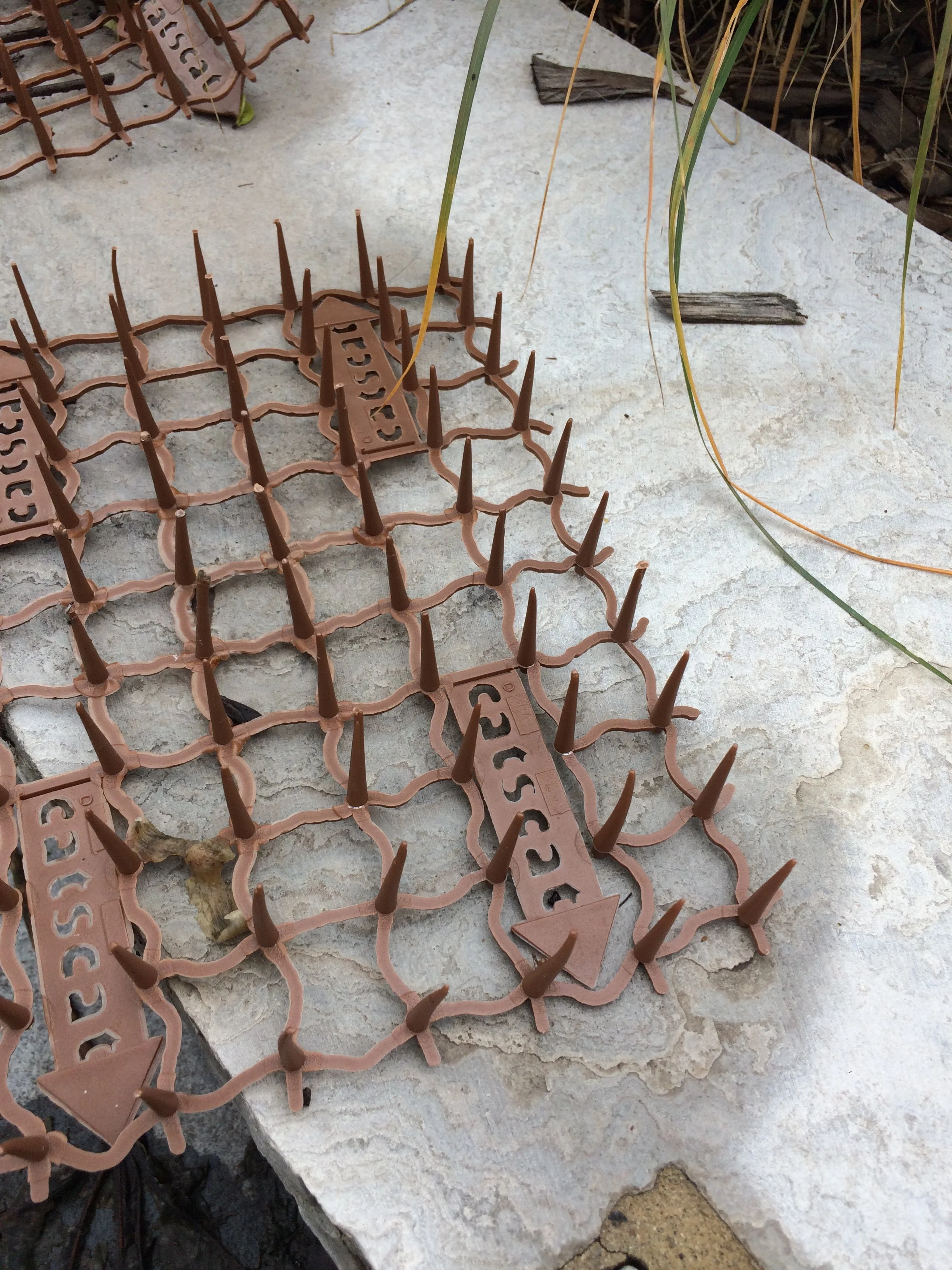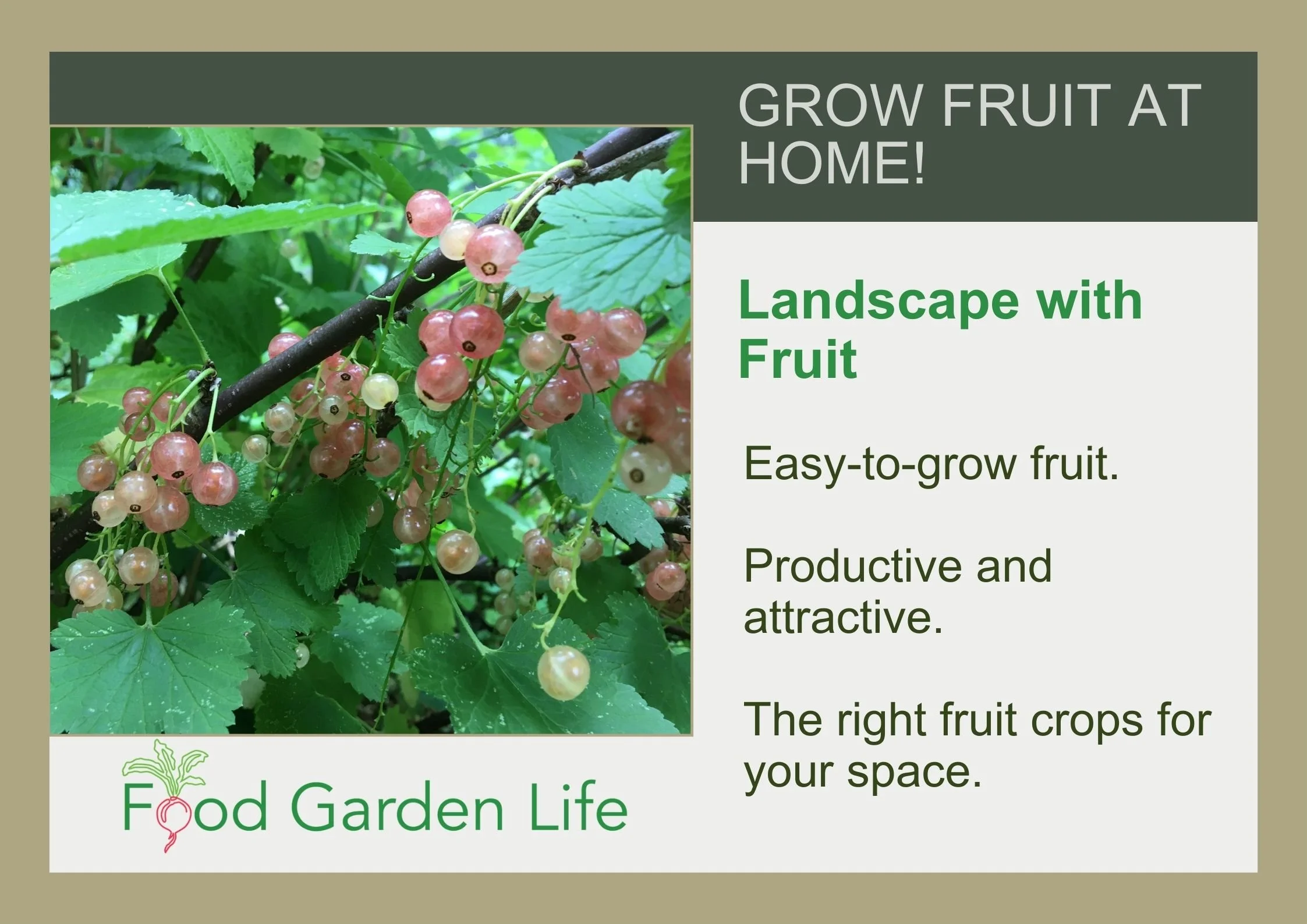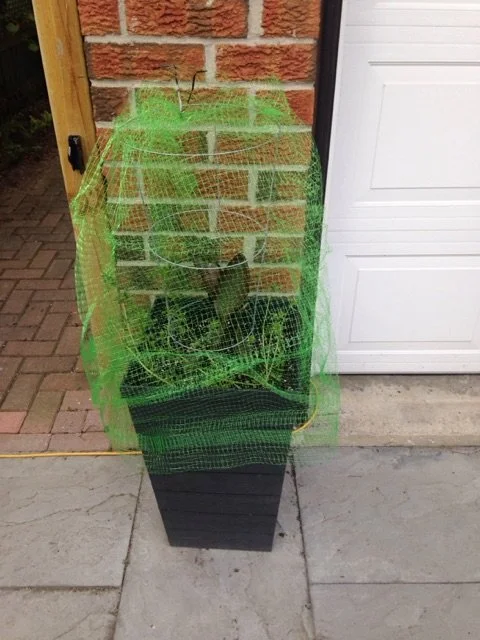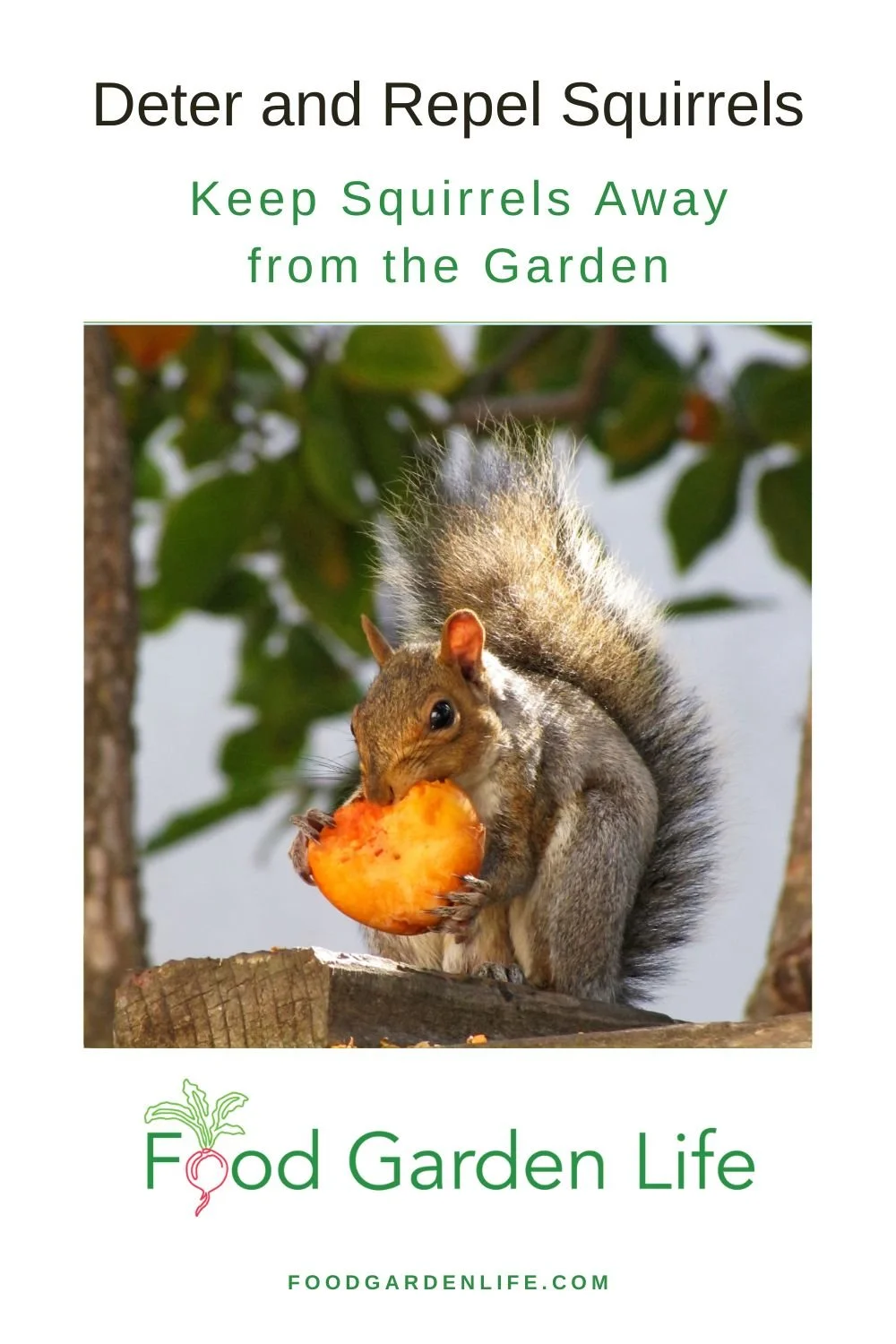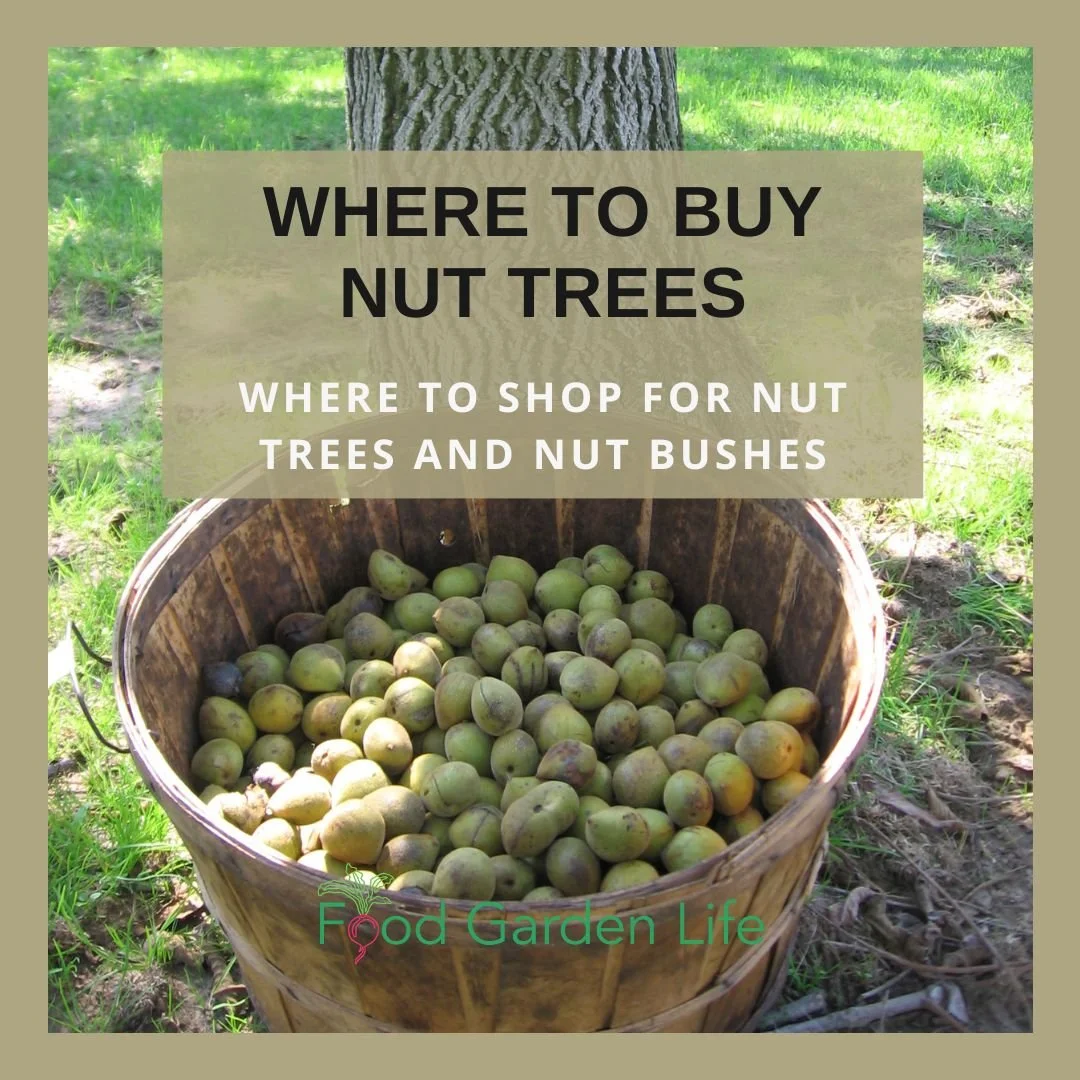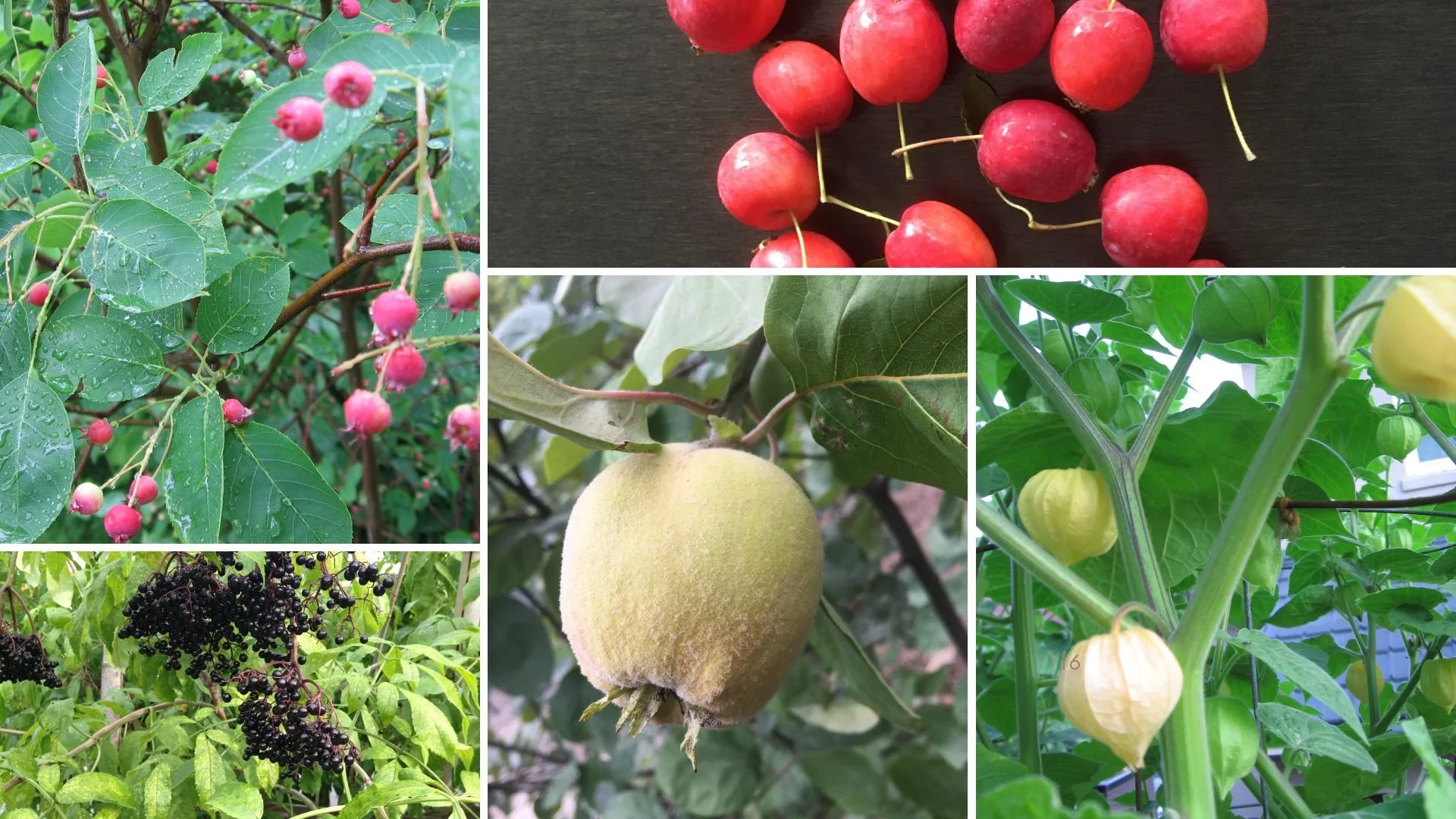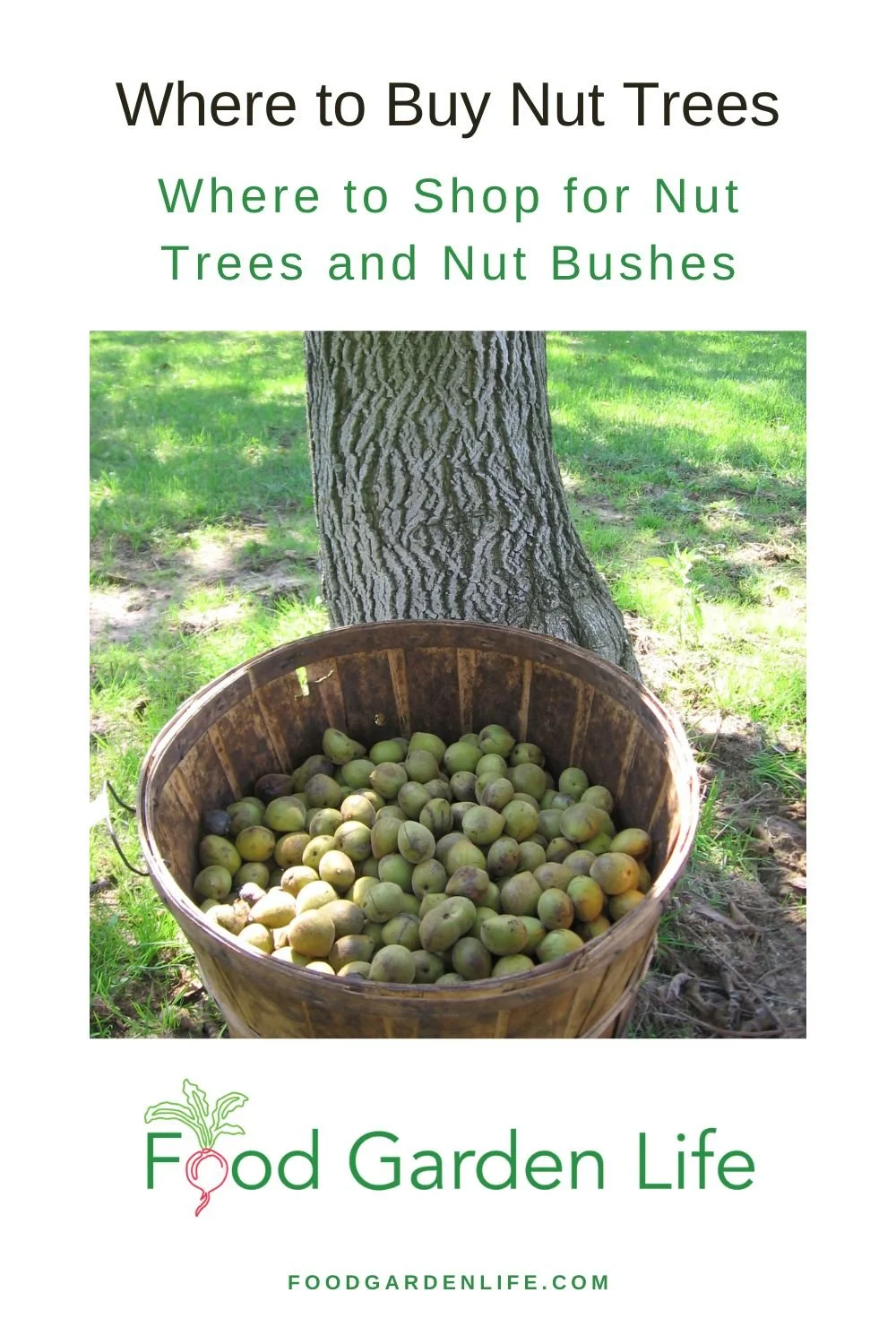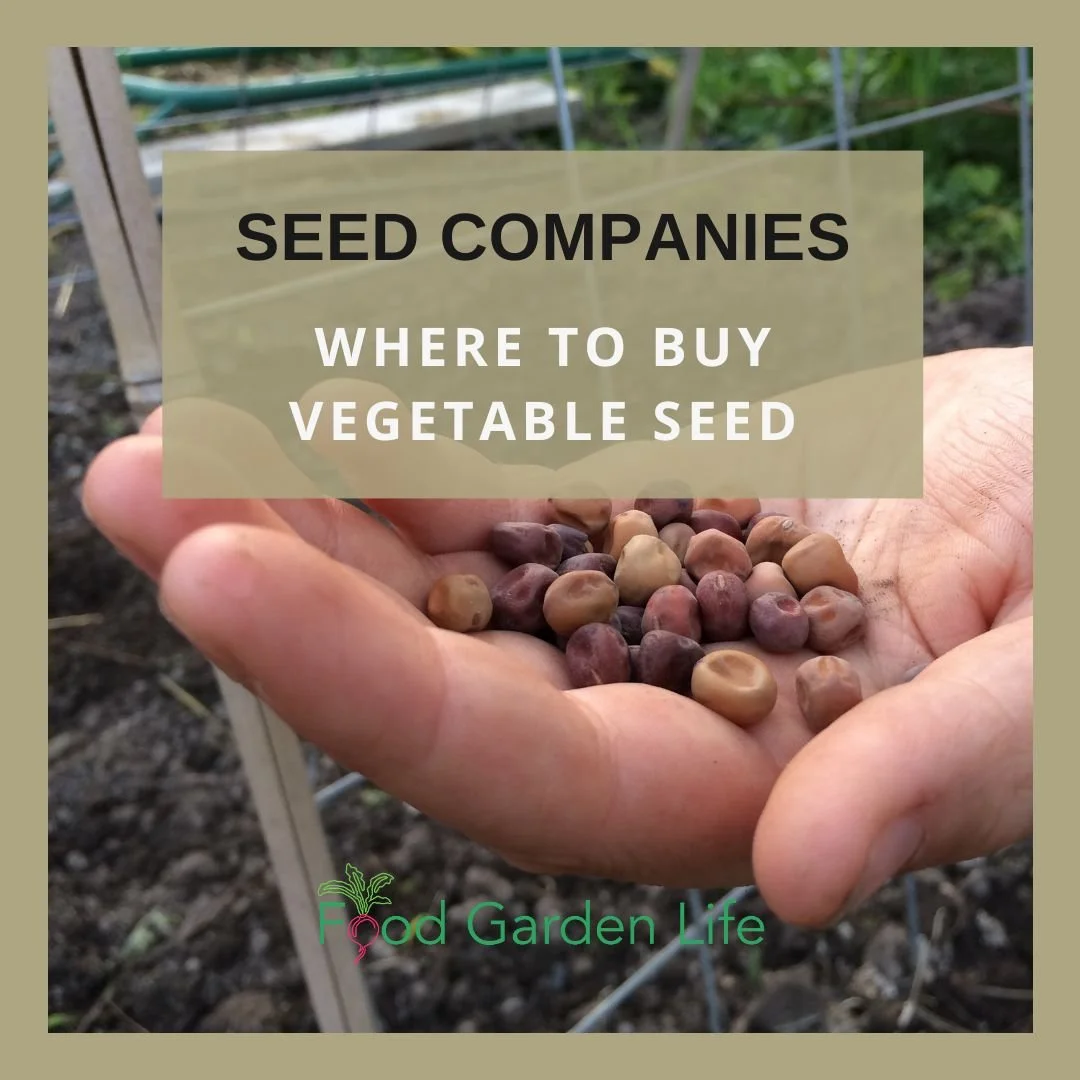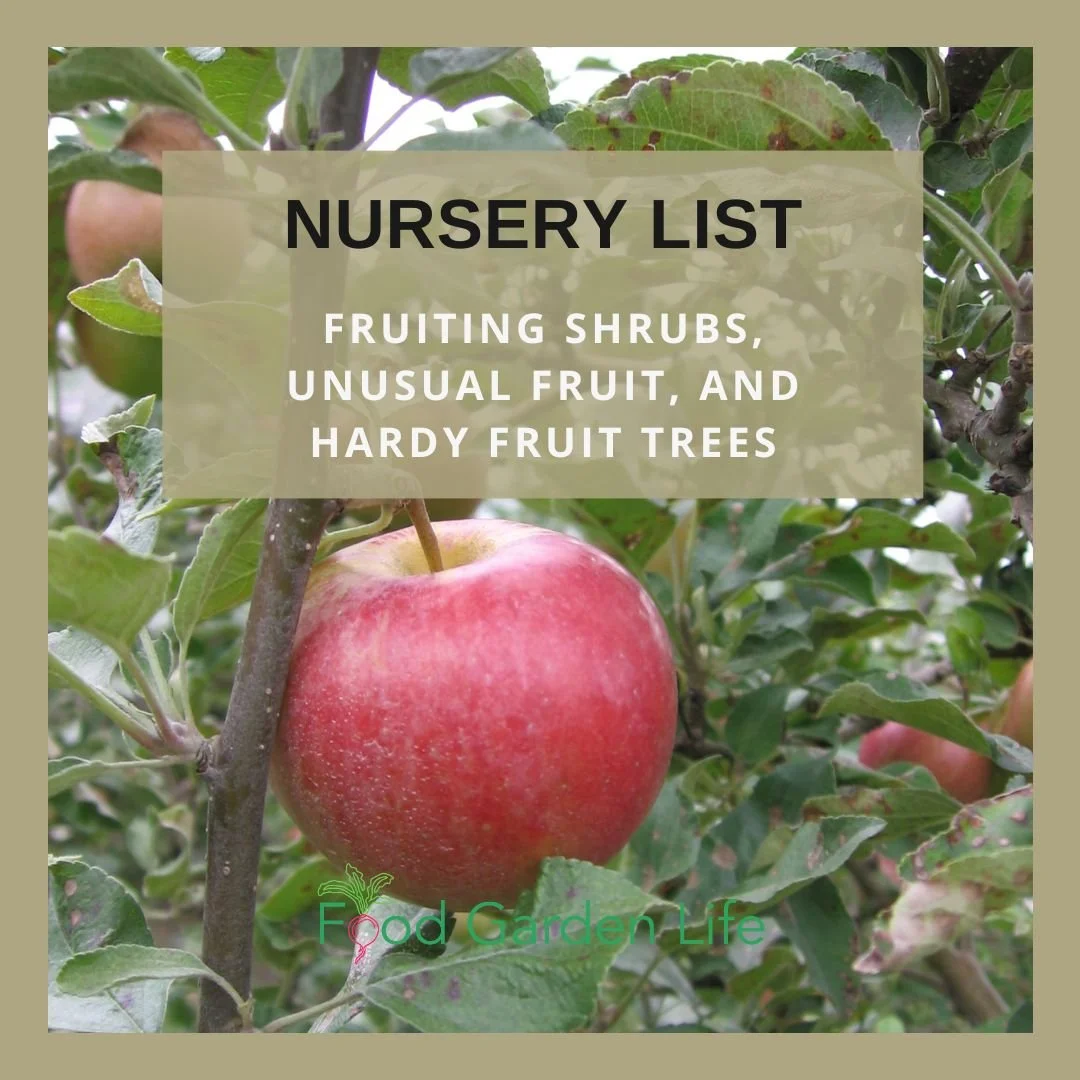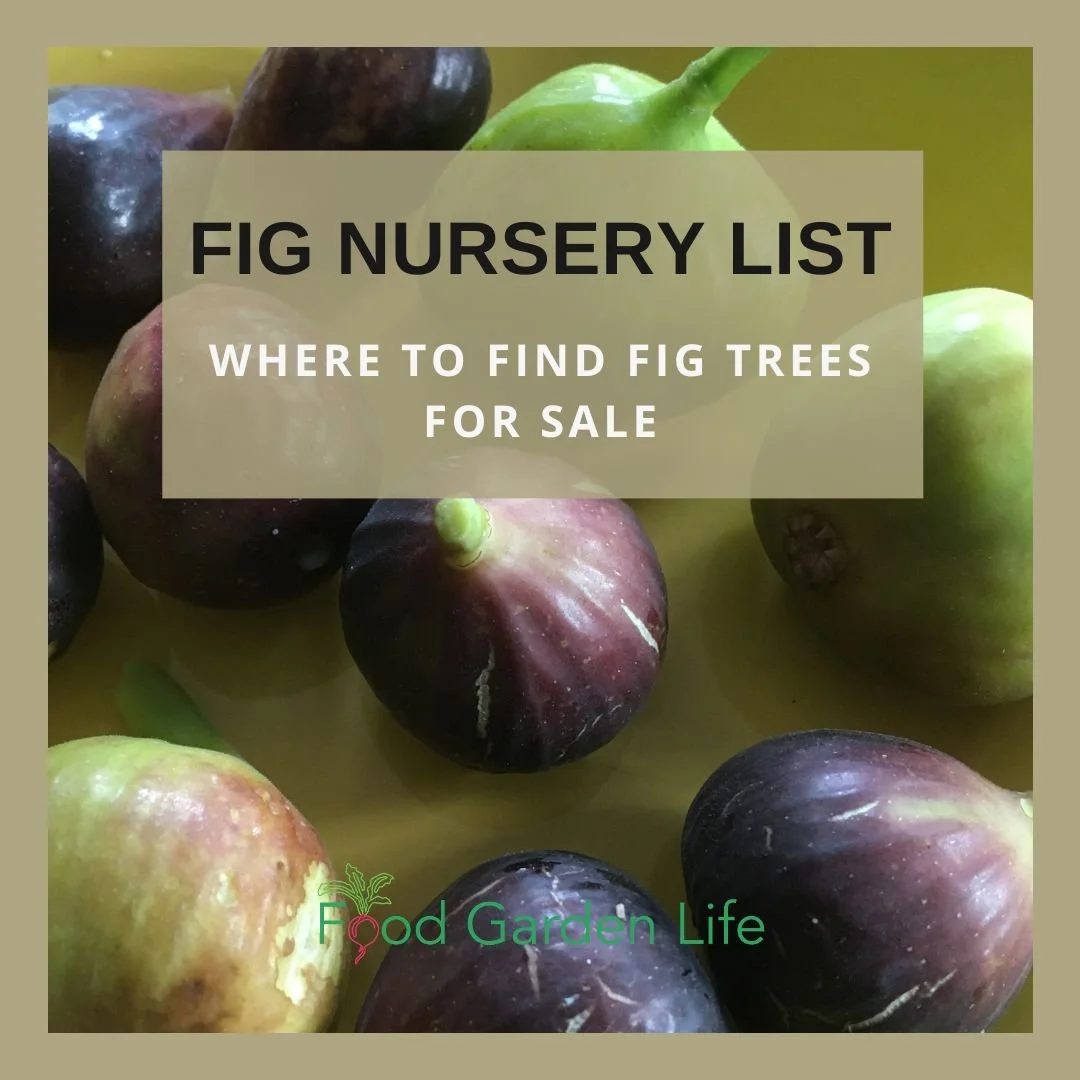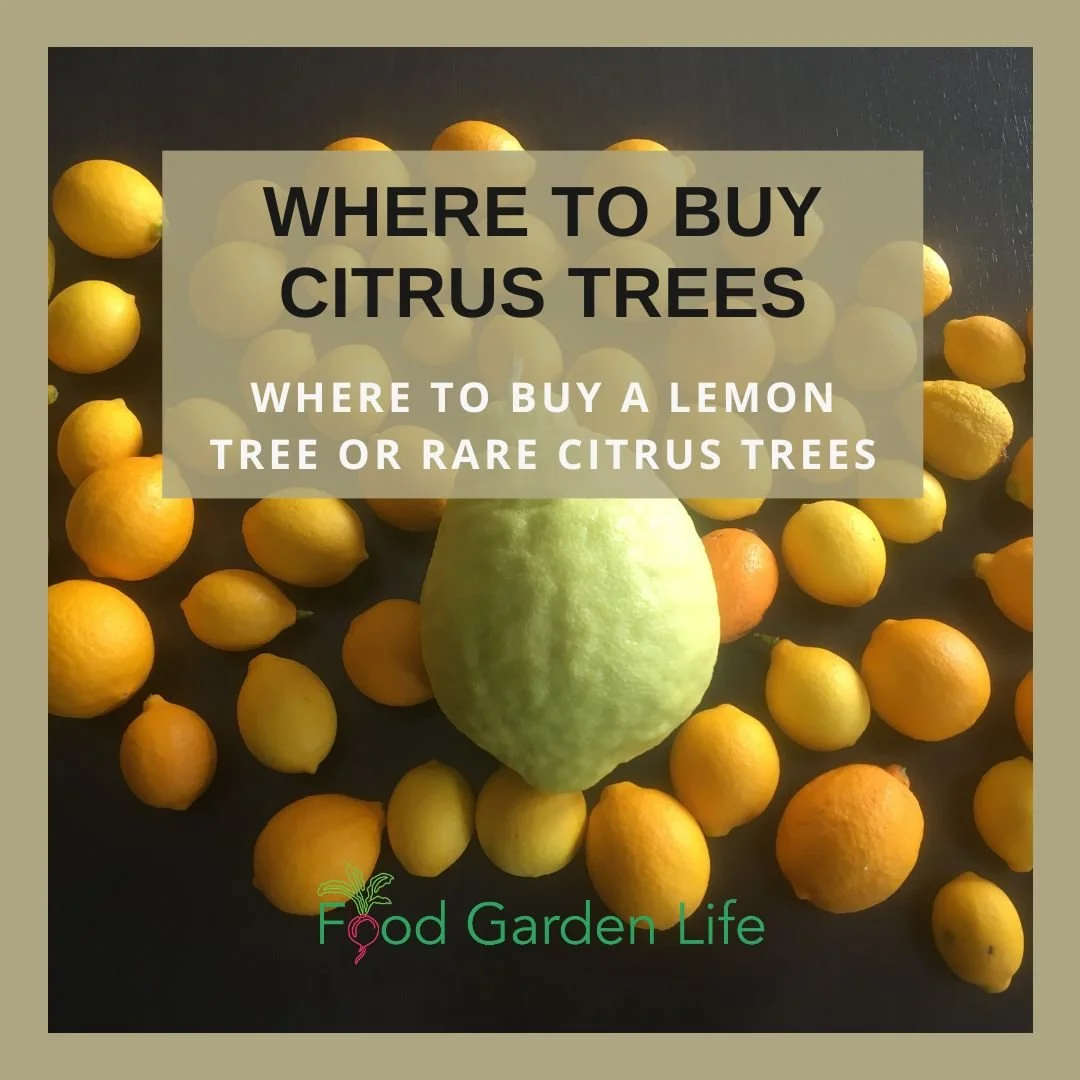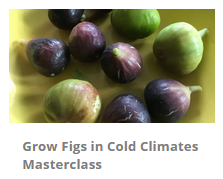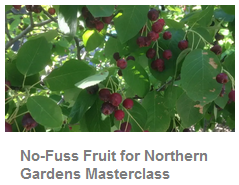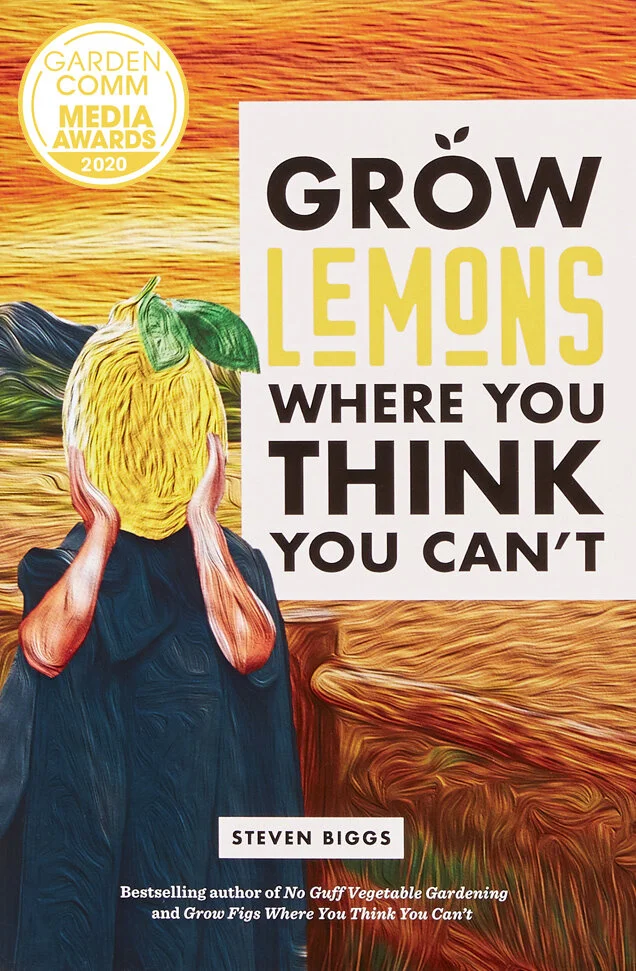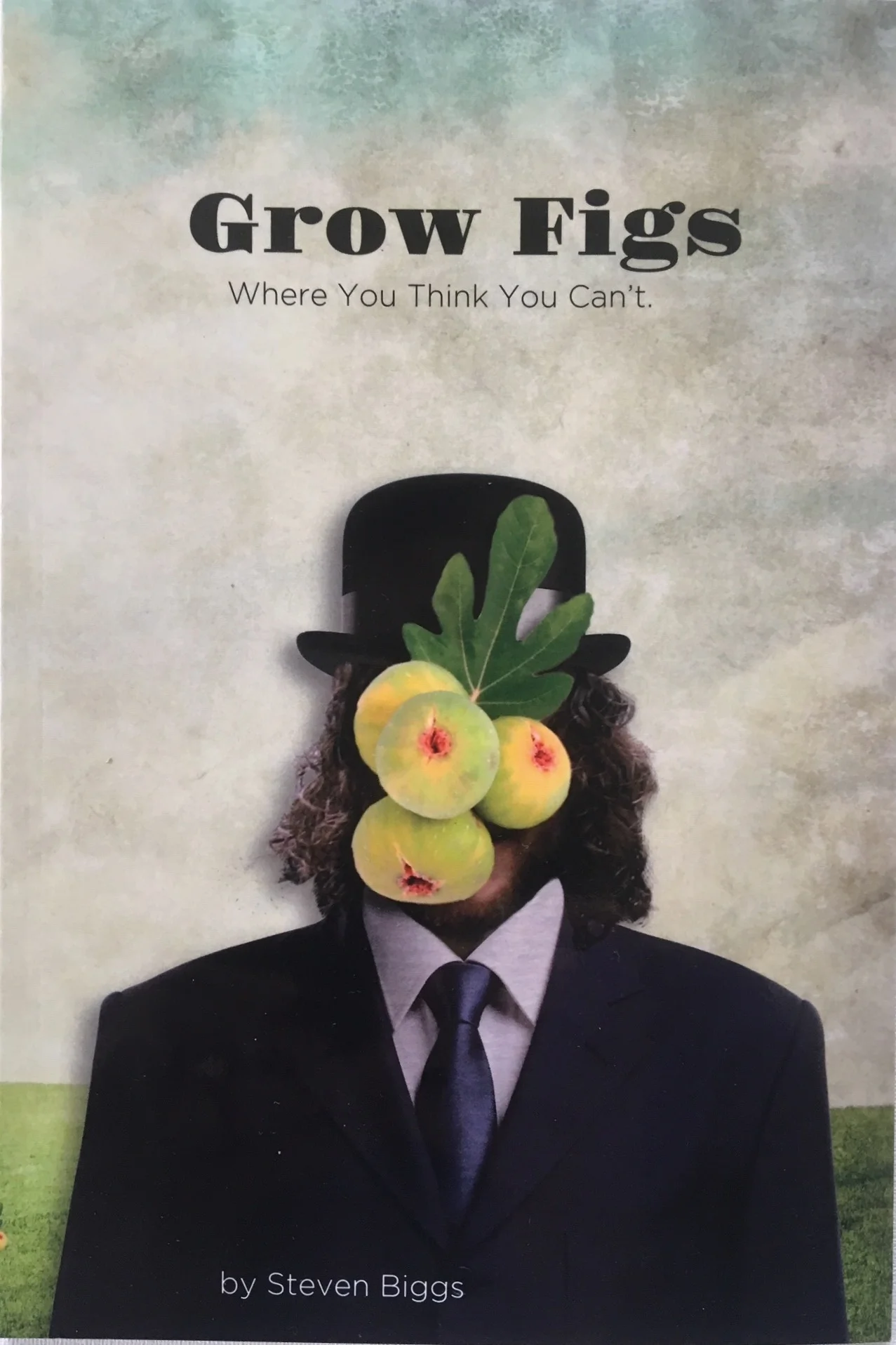
How to Keep Squirrels Away from the Garden
Deter Squirrels and Repel Squirrels
Ideas to keep squirrels out of your food garden.
Squirrels can cause a lot of damage in a home food garden. They get into fruit crops, nut crops, the vegetable garden, and potted plants.
In a home-garden setting, they can be more of a problem than they are for commercial growers. That's because small, enclosed home gardens often have fewer natural predators. And because some people like watching squirrels, and actually feed them on purpose.
But there are ways to keep squirrels away, and to deter them from pilfering your crops. Keep reading if squirrels make your blood boil: This article has 50 ideas to safeguard your garden. (If you're a squirrel lover who purposely feeds them, this article is not for you.)
Key Takeaways
Keep squirrels away from your food crops using a combination of strategies:
Make your yard less inviting to them.
Make it difficult for them to get to your crops and garden beds.
Natural predators can help, and so can pets such as cats and dogs.
Plan your harvest so that you beat them to it.
Choose crops and varieties that are less likely to be bothered by squirrels.
Use repellents to make your garden less attractive.
Understand Squirrel Behavior
We'll get to a number of specific strategies you can use to prevent squirrels spoiling your harvest, but first, let's understand why they're attracted to your garden.
What Do Squirrels Eat?
There are lots of food sources for squirrels in a home garden. They feed on nuts, seeds, fruit, and insects.
Squirrels are not fussy eaters. They're omnivores. That means they feed on a variety of things including nuts, seeds, fruits, and insects. Oh, let's not forget the tulip bulbs or Halloween pumpkins! I've even caught one digging up my carrots in the fall.
For a squirrel, your garden is a buffet. And its diet changes seasonally depending on what's around.
What Attracts Squirrels to Your Garden?
If you put out food for the birds, that's a big-time squirrel attractant. Even if you feel smug about the squirrel baffles that keep them from your bird feeders, bird are as tidy as toddlers: They spill seed onto the ground. So the squirrels just feast at ground level.
If you're growing food, unfortunately, that's attractive to squirrels too. Fruit, seeds, bulbs...
They need water too, so ponds and bird baths make your garden more attractive.
What Else do Squirrels Do? Other Types of Squirrel Damage
It’s common for squirrels to dig around potted plants (and often dig them right out!)
Squirrels dig up newly worked garden beds and newly transplanted plants. That digging can be a downer if you've just planted seeds or transplanted seedlings. The digging often becomes less frenzied through summer, as they occupy themselves with other sorts of damage.
If you find the end nipped of tree branches, that's probably squirrels too.
One day I noticed a squirrel skulking around with branches in its mouth. Turned out it had chewed most of the fruiting branches from one of my espaliered apple trees so it could make a nest nearby.
Squirrels and Balconies
Balcony and rooftop gardeners might deal with squirrels too. Friends with a balcony garden on the 22nd floor asked me how to deter squirrels. To my surprise—and theirs—they kept finding nuts in their balcony planters, and their plants strewn on the floor. They described watching the squirrel descend the flat face of the building, head first. No fear.
Will the Squirrels go Away?
Squirrel populations go up and down, depending on the availability of food, on disease pressures, and how many predators are around.
And some years new squirrels come along that are smarter than the others...and figure out how to hack your squirrel-proofing. Don't worry, their life span is much shorter than yours.
So if you're in the midst of a really frustrating year, don't give up! They will go away.
Remember
In a home garden, we don't have the time or resources to grow a perfectly managed crop like a commercial grower. You might lose some of it to squirrels. But using some of the ideas below to deter squirrels or repel squirrels, you can still harvest lots for yourself. So don't sweat imperfection. Just start the gardening year knowing they will steal some stuff, but that you still have (some) control.
50 Squirrel-Busting Ideas for Your Garden
Keep Crops Out of Reach to Deter Squirrels
One way to deter squirrels is to exclude them, to prevent them from getting to your crops. They can’t dig up this newly planted bed protected by chicken wire.
Keep squirrels away from your crops using simple tactics to exclude them.
Be Cagey. When our rooftop melon crops were relentlessly destroyed, I put a big wire cage over top of the planter. This is not practical for large gardens. Nor is it pretty. But in some situations it's a practical solution. (Simple to put together with hardware cloth or chicken wire, zip ties, and bamboo poles.)
Cloak the Rows. A floating row cover (a.k.a. horticultural fleece) is a fabric that goes over top of the crop. It's usually used to hold in heat—but it's also an excellent squirrel deterrent. You can put the cover right over top of low-growing garden plants such as leafy greens, or use small hoops under the fabric for taller crops.
Protect Seeds in Pots. Squirrels often dig newly planted seeds from pots and containers. You come home only to find soil everywhere. Put a chicken-wire cover over the top of the pot or planter. Then remove it once the crops are growing. If the squirrel pressures are bad, leave it all season and let the seedlings grow right up through the holes in the wire.
Save Potted Plants. You can also use wire when potting up individual plants. Use wire cutters to make a hole in the wire for your plant to grow through. I saw an entire container garden grown in a squirrel infested neighbourhood using chicken-wire pot covers.
Trays Over Rows. Nothing is more discouraging that planting a row of seeds in the garden only to have a squirrel come and unplant them. Put upside-down web trays over newly planted seeds. Better yet, pin them down with a rock or brick so that if there's wind, they won't blow away. Great temporary way to discourage squirrels!
Flower Pots Repurposed. Same idea as the trays, above, except suited to a smaller area.
Wire Over Garden Rows. For the incorrigible diggers, you can temporarily lay chicken wire or hardware cloth over a newly seeded patch of garden.
Repurpose Cold Frames. The cold frame gives you something onto which to fasten chicken wire. Now you have a protected space for low-growing crops such as strawberries...and squirrels love strawberries.
Make a Tree Unclimbable. If squirrels are scaling a fruit tree, you might be able to sheathe part of the tree trunks in slippery metal, so they can't get to the tasty fruit above. Just keep in mind that squirrels do jump--and might be able to jump from an adjacent tree or fence...so this tactic doesn't work in all situations. The sheathing must be high enough above the ground and the tree far enough away that they can't just jump into it.
Skewer Teepee. Haven't tried this one, but a student told me how she protects newly planted tomato plants from being dug up by inserting pointy skewers (the sort used for kebabs), pointy side up, in a teepee formation around a plant or around the edge of a pot. Makes it unpleasant for the furry fiend to try to reach over it. I've also heard of people installing a row of upturned plastic forks to accomplish the same thing.
Transplants Instead of Seeds. Seed-grown sunflowers in the garden don't always work for us. Seeds get eaten before they can grow. That's when sunflower insurance comes in handy: We also start a few sunflower seeds indoors, and then transplant the seedlings into the garden a bit later.
It'll Come Out in the Wash. We've resorted to upturned laundry baskets as defensive measures for pumpkins. Ain't pretty. But it works.
Sheer Determination. A reader who is a custom drapery maker reports covering entire pots of tomatoes with sheer fabric, with a few supports to hold up the fabric. She notes that it's a bit of work to lift the fabric for harvest, but worth the effort. Sheer fabric, she says, is usually 118" wide, and sold by the yard. So a 3-yard piece of fabric is enough for a big pot of squirrel-foiling folly. Fun way to bring down the curtain on tomato theft! (Thank you Diane!)
Bottled Up. Thanks to a reader for this squirrel proofing hack for cucumbers. Take a 2-litre pop bottle, remove the label, and punch a few drainage/ventilation holes. (Soldering iron works well!) Once a cuke has formed, insert it into the bottle. If the plant is trellised, tie the bottle to the trellis. For really long English cukes (or luffa gourds or snake gourds), cut off the bottom of the bottle to allow it to grow longer. Or, force-fit your gourds into the shape of the 2L bottle! (Thank you Jurgen!)
Drink to Their Health. The bottle idea above makes me think of the pear liqueur my neighbour Dave talks about, with a large pear inside a bottle from which there's no way of retrieving it. Same idea as above: The fruit is inserted into the bottle while very small. Bet they can't chew through a glass bottle!
Plastic web trays that are used for transporting plants are a simple way to protect newly planted areas of the garden from digging squirrels.
Container Veg Gardening Course
Out of Sight, Out of Mind
Putting the soil out of sight can really help reduce digging in newly planted containers. Pictured here is burlap.
Hide the Soil. When it's out of sight, it's out of their wee minds. Sometimes just putting the soil in your planters out of sight prevents digging. They don't see the soil, they don't dig. When I fill up planters with transplants, I first cover the soil with burlap, tucked in at the sides. I use a razor to cut an X for each plant, and then plant into it. A great thing about burlap is that it's a natural fibre that breaks down over the summer, and the scraps left at the end of summer can go onto the compost pile.
Mulch It. Same idea as the burlap above, but use a plastic mulch film over the soil, either in the garden or in your planters. I don't care for the appearance of the black biodegradable plastic mulches, but they do help cut back on digging. They also hold in soil moisture.
Bag it! I put organza bags over prized fruit such as my pawpaw and my Cox's Orange Pippin apples. There's been an occasional year where a wily squirrel figures out it can chew through the bag, but most years it works nicely. (The white bags are very conspicuous, but green ones blend into the landscape a bit better.)
Biodegradable plastic mulch is another way to cover the soil in containers, so that squirrels are not tempted to dig up newly planted crops.
Accept Help
You can't be there all day to chase squirrels away from your crops. But maybe there are other creatures that can help prevent squirrel damage.
(And I should also note here that I encounter wildly varying mindsets when it comes to what I share below. For some gardeners, squirrels are garden pests—and just like weeds, they don't want them in the garden. Other gardeners appreciate them as a form of amusement, and think of them as part of nature that they don't want disturbed. I'm with the former, or I wouldn't be writing this post.)
Pets and natural predators can be one of your squirrel-proofing strategies.
Get a Dog. One reader told me he doesn't have squirrel problems; he has a 120-pound German shepherd. (Thank you, Steve!) It’s worth noting that not all dogs have the knack. The squirrels torment a nearby pooch...they run back and forth along the fence, as the dog runs back and forth along the ground barking at them.
Get a Cat. My fig mentor Adriano told me squirrels weren't a problem for him because he had a cat. (I got a cat once...turned out to be a lover, not a hunter. It spent the day accosting passersby on the sidewalk, purring, did nothing to prevent squirrels having a party in my garden.)
Watch Like a Hawk. Red-tailed hawks dine on squirrel in the big tree behind my house. We heard two red squirrels telling off a hawk one day. It quickly picked off one, and then returned for the other. Two-for-one special. The red tails hang out in my yard because I didn't clear-cut all of the big trees.
Don't Forget Foxes. The summer foxes moved in a couple of doors down from us, there was almost no squirrel thievery. The sassy squirrels were quickly dispatched. Those that remained didn't seem eager to come out of the trees. The foxes made a den under a neighbour's shed. I'm glad he didn't try to scare them away.
This Didn't Work. When my kids were small I gave them sling shots and a bag of dried chick peas, thinking is was a perfect way to chase squirrels. We ended up with a hummus-like chickpea sludge on the garage roof. It didn't keep squirrels away...merely had them darting out of range.
The Right Timing Helps
We should have picked this tomato a couple of days earlier, and then we would have had the whole thing…but we left it until it was pretty ripe, and a squirrel ate part of it.
Like many things in life, timing and patience can help you harvest more.
Go Back Later. When your newly sown seeds are repeatedly desecrated by squirrels in the spring, you'll want to pull out your hair. Exasperating. Or you find your potted plants unpotted! But sometimes if you wait a week or two, there's enough else going on in the garden that the critters find something else to do. Problem resolved.
Harvest Earlier. If you leave a big, juicy tomato on the vine until it's perfectly ripe, it might temp them. Pick it a couple of days earlier, though, and it's all yours. No nibbled-off sections. Tomatoes, like many other fruit, continue to ripen once you pick them, so you don't lose anything with this tactic. It works for apples, and melons too.
Crop Choice
Cut your losses through crop choice.
Bite This! Grow chili peppers and other hot peppers, which squirrels find distasteful. Contrast these to nice, plump bell peppers which they'll surely nosh on.
Small Wonder. Grow berries and small fruit such as currants and saskatoons. Even if they snack on a few, there's loads left for you. Contrast that to a dwarf apple tree, where they might take a bite out of each of the dozen apples on there.
Forget Big Apples. And if you must grow apples, try a culinary crab apple. ('Dolgo' makes a lovely apple sauce and a divine ice cream.) With crabapples, you get lots of smaller apples instead of a few big ones, so there will be some for you even if the squirrels steal a few.
Bye-Bye Beefsteak. When you have a tomato plant with a half dozen lovely big beefsteak tomatoes, and lots of squirrels about, you're setting yourself up for a blood pressure spike. Because they'll want to taste each of them. But if you plant a cherry tomato variety with hundreds of smaller fruit, there's lots for you too.
Go Green. I haven't seen research to back this up, but I feel like my green-when-ripe tomato varieties and my green figs fly under squirrel radar.
Knight in Shining Armour. We love litchi tomatoes, a spiny tomato relative that's really quite delicious. The plants, though, are quite ferocious. Horrid to work with. And the fruit are clad in a squirrel-proof spiny armour.
Litchi tomato is covered by spines. The covering finally opens as the fruit ripens. They’re a great crop where there are heavy squirrel pressures.
Repel Squirrels
Over the years, I've heard of all sorts of sprays and scents that people swear by. None have been as effective for me as cayenne pepper, see below. There are many scent deterrents. Some scattered in the garden, some sprayed on. The main thing to remember is that they usually need frequent reapplication.
Feeling Hot, Hot, Hot. A hot pepper decoction sprayed on your prized fruit can make it less appealing to squirrels. But it's a lot of work, because you first must make the decoction, and then reapply after rain.
Make it Nicer to go Next Door. In the same way you put burglar alarm stickers on your windows so burglars will go next door, grow something that squirrels don't like—so they go next door. I interplant flower bulbs such as tulips (which squirrels love to steal) with daffodils and fritillaria, which squirrels hate. Imagine that, you can plant bulbs to discourage squirrels!
Hot pepper decoction seem like a bother? here’s another take on using hot peppers: Amy Tan, author of the book The Backyard Bird Chronicles, sets out hot-pepper suet for the birds. Birds aren’t bothered by the hot peppers…squirrels won’t try it more than once!
If you like the idea of interplanting, here’s more (thanks Gail!): Plant bulbs like a layer cake, with tulips (which squirrels like) on the bottom, and then a layer of soil followed by narcissus and daffodil (which the squirrels don’t like). Of course, this does nothing to halt the bud-nipping as they’re about to flower…
Make Your Yard Less Attractive
Don't make your yard a gathering place, where they'll happen upon your strawberries or tomatoes when they come for a daily dose of bird seed.
This sort of spike mat is often used to deter pigeons, but can also make it difficult for squirrels to launch themselves towards somewhere you don’t want them, such as a bird feeder.
Baffle Them. As a gardener who enjoys bird watching, I don't propose you get rid of your bird feeder. But do get baffles or a squirrel-proof bird feeder. There's still bird-seed spillage, but at least you're not serving up a smorgasbord.
Flip Them the Bird. A neighbour finds that hanging the bird feeders on a clothes line isn't enough. They soon figure out how to get to them. But put noodle over the clothesline, and as the pool noodle begins to rotate under the creature's weight, the thief flips off! (Thank you, Mary!)
No More Acrobatics. A neighbour has squirrel baffles on her bird-feeder poles. But the squirrels quickly figured out that they could launch themselves from her deck railing—and about half the time, reach the feeder. Quite amusing to watch, actually. Spiky mats (often used to keep pigeons off of window ledges) on the deck railing cut short the runway for the launch.
Feed Birds Seasonally. Have the squirrels been in the habit of hanging around under your bird feeder all winter? Break the habit. Don't put out feed through the growing season.
Good Housekeeping. I'm not a believer in garden perfectionism, but I do tidy up when my neighbour's black walnut tree unloads bushels of black walnuts into my yard. No point making my yard a destination for bushy-tailed beasts. If your yard is littered with other favourite treats such as acorns, pine cones, fallen nuts, and fallen fruit, tidy up.
For Your Sanity
It's OK to Yell. Mom had a bird feeder outside her kitchen window. The squirrels appreciated it. And every so often she'd fill a pot of water, open the door, yell, and fling the water at them. They'd soon be back, but she felt better. I'll sometimes open the door and say rude words if there's one sitting on my deck railing with a fig.
It’s OK if your kids yell too. Anna writes, “My (not-at-all-scalable, and only-effective-during-waking-hours) solution is my six year old. She chases them out of the garden—usually shouting. Obviously not an effective solution if she's sleeping or at school. She's pretty effective at getting rid of hungry pigeons too.“
Slide Show. It can be fun to smear Vaseline on a bird feeder pole simply to watch squirrels climb it and slip and slide back down the pole.
Landscape with Fruit Course
Things I Haven't Yet Tried
Plastic bird netting to keep squirrels away from a flower pot.
Squirrels Have you Tearing our Your Hair? Try this! A reader writes that she uses hair from her hairbrush around tulips to deter red squirrels from nipping off tulip flowers. She's planning to do the tomatoes next...but it takes lots of hair, so collect it all year to be ready for summer! (Thanks Sandra!)
Decoys. Plastic owls or snakes. Though I've seen these used as deterrents by giant pumpkin growers, I recall the squirrels climbing the pole with a plastic owl in my parents' garden...so I'm not sure.
Hot Sauce. Some people swear by hot sauce. I'd just go for a cayenne pepper decoction. Cayenne powder costs less. And why make your garden smell like a plate of chicken wings from the pub?
Plastic Netting. I've known tormented gardeners to put a shower cap of plastic bird netting over planters. Prefer netting that’s barely visible? Black netting is another option. (Thanks Kathleen!) If you're growing something that they really want to get to, a physical barrier such as wire mesh will give better protection.
Motion Activated Sprinklers. A friend found that a motion activated sprinkler solved the problem of raccoons eating all his figs. So you might want to try it with squirrels...though I suspect you'll find you have a high water bill, and an overwatered garden.
More Scents. Some people swear by peppermint oil, coffee grounds, garlic, or even chive plants as squirrel repellents. I don't have an opinion as I haven't experimented with these. The main thing to remember with scent-based repellents is that you must reapply frequently. Recently I’ve heard people talking about using the dry, pelleted hen manure that we can buy here, though I haven’t experimented with it.
Quench the Temptation. Suzanne writes that she's heard squirrels take a bite of tomatoes because they're thirsty. So she's put a bird bath near the veg patch. Not scientifically proven, but she's finding it works. (Thanks Suzanne!)
Straight Shooter. In urban areas, squirrels might be considered wildlife and afforded protection. Not so in many rural areas. I've had rural readers write to say that with a good dog and a .22, they don't lose their crops. (Thanks Esther!)
Do you have experience with any of these? Or other squirrel repellents to report? I'd love it if you email me to tell me.
I Wish I Could Find a Study…
What’s the Scoop on Poop? A number of garden centre employees have recommended pelleted chicken manure to me as a squirrel deterrent. And there are lots of blog posts touting it. But I have yet to find research that digs into chicken manure as a squirrel repellent. If the chicken manure does work, it could be because of a couple of things: The odour is a deterrent; or the odour masks smells that cause squirrels to dig.
Don't Waste Your Time
Pin this post!
Don't Blow Your Top. I was out for a stroll one night when I saw my neighbour Joe chasing a squirrel. The squirrel had the last of the dozen apricots from his dwarf apricot tree. He didn't get the apricot back. Squirrels will outrun you.
On the Dot. My neighbour Bob thought he'd save his fruit crops by trapping squirrels and relocating them. He'd drive 3 km, across a very busy, 6-lane road, to a natural area where he'd release squirrels. When he became suspicious that he was still seeing the same squirrel, he marked an orange dot with spray paint on its back. Yup, same squirrel.
Pee. I once lived in a rental house with an attic overflowing with squirrels. They were always pouring out of the holes they'd chewed in the soffit. I could hear them up there. Sounded like a square dance. The landlord swore by the predator urine (I think coyote) that he paid big bucks for, bathing the roof of the house with the stinky granules. The pest-control technician who he finally dispatched laughed when I mentioned the urine. "Doesn't work," he said.
When All Else Fails
Gardening should be a pleasure. Use a combination of the ideas so that you can harvest more. And know that, as a home gardener, you’ll probably have more losses to pests than a commercial grower. But you can still harvest lots for yourself.
Suck it, squirrel!
Find This Helpful?
Enjoy not being bombarded by annoying ads?
Appreciate the absence of junky affiliate links for products you don’t need?
It’s because we’re reader supported.
If we’ve helped in your food-gardening journey, we’re glad of support. You can high-five us below. Any amount welcome!
Food Gardening Articles
Food Gardening Courses
Find out how to grow more great food at home with our online courses. We have both live and self-paced courses.
Shopping for Nut Trees? Find Out Where to Buy Nut Trees and Nut Bushes
Where to find nut trees and nut bushes for sale.
By Steven Biggs
Nut Tree Nursery List
I get a lot of messages from people looking for more edible plants for their home gardens and edible landscapes. So I hope this list of nurseries that sells nut trees and nut bushes helps you find the plant you’re looking for.
This list focuses on nurseries, garden centres, and specialty nut growers in Canada and the northern USA.
It’s a work in progress. If there’s a nursery you recommend, please e-mail me to let me know.
Before you browse nut tree nurseries, get started with Nut Tree Shopping Tips, below.
Tips When Plant Shopping
Here are tips to keep in mind as you get ready to order trees and shrubs.
Delivery vs. Pick-Up
It’s expensive to ship trees and shrubs! They’re big. And if there’s soil—they’re heavy too.
Delivery costs depend on the distance, the size of the plant, and whether it’s in a pot with soil, or is “bare root.”
(Bare root means it’s dormant, and there’s no soil.)
If picking up your fruit plants is an option, you can usually save quite a bit of money.
Ordering and Shipping Fruit Trees and shrubs
Shipping usually begins in spring, when there’s no further risk to the plants from cold temperatures.
The first to ship are “bare root” plants—dormant shrubs and trees with no soil. (Roots are wrapped in something damp to prevent them from drying out.)
Cross-Border Shipments
Some sellers don’t ship out of country. That’s because it usually involves “phytosanitary” inspections and paperwork.
Or, there might be restrictions on shipping some types of fruit to some regions (to avoid the spread of pests or diseases.)
If you find an out-of-country vendor who ships to your country, ask about the cost of phytosanitary certificates—as well as the delay that inspections can cause for your shipment.
When You Receive Your Order
Bare-root Plants. Keep them somewhere cool and dark until you’re ready to plant them, so that they remain dormant. Plant as soon as possible. Make sure the roots stay moist.
Potted Plants. There’s less of a rush planting potted plants than there is with bare-root plants. Keep plants well-watered until they’re planted.
Landscape with Fruit
That’s easy to grow in a home garden!
Canadaian Nurseries Selling Nut Tree
Looking for Canadian nurseries selling nut trees? Here’s a list of Canadian retailers of nut trees. Remember: Not all nurseries grow their own plants. So if you want Canadian-grown plants, ask the nursery if their stock is produced in Canada.
Bunchberry Nursery
Upper Clements, Nova Scotia
Along with fruit trees and bushes, nuts, and figs, specializing in alpines, heaths and heathers, dwarf conifers, rhododendrons, grasses and perennials.
Exotic Fruit Nursery
Pin this post!
Lunenburg, Nova Scotia
Hardy fruit, exotic fruit, and nuts.
Hardy Fruit Tree Nursery
Rawdon, Quebec
Cold-hardy nut trees, nut bushes, and a wide mix of fruiting plants.
Grimo Nut Nursery
We get Ontario grown pecans here! They sell a wide range of nut trees and nut bushes, along with some minor fruit.
Founder Ernie Grimo joined us on The Food Garden Life Show to talk about cold-adapted nut trees. Tune in here.
Nutcracker Nursery
Maskinongé, Quebec
As the name suggests, nut trees is a specialty. I’ve ordered plums and damsons here and was pleased with the quality of the plants.
Pépeinière Ancestrale
St-Julien, Quebec
Good mix of nut trees and nut bushes. This is where I got my first cherry-plum bushes. Fruit and nut trees.
Prairie Hardy Nursery
Two Hills, Alberta
Recommended by my horticultural colleague in Alberta Donna Balzer.
Rhora's Nut Farm and Nursery
Wainfleet, Ontario
Specializing in nut trees and minor fruit.
Silvercreek Nursery
Wellesley, Ontario
Nuts and fruit. Some of my apple trees are from Silvercreek—and I took a fantastic grafting workshop there.
Whiffletree Farm and Nursery
Elora, Ontario
Nut trees, nut bushes, fruit trees and bushes, and orchard supplies.
Willow Creek Permaculture
Dutton, Ontario
Fruit and nut trees.
USA Nut Tree Nurseries
One Green World
Portland, Oregon
Nut trees and bushes, fruit, subtropical fruits, fruiting ground covers. We chatted with Sam Hubert from One Green World on the podcast to find out all about hardy citrus. They carry lots of other fruit trees, fruit bushes, and berries too.
Raintree Nursery
Morton, Washington
A diverse collections of edible plants including nut trees and nut bushes.
Find This Helpful?
Enjoy not being bombarded by annoying ads?
Appreciate the absence of junky affiliate links for products you don’t need?
It’s because we’re reader supported.
If we’ve helped in your food-gardening journey, we’re glad of support. You can high-five us below. Any amount welcome!

